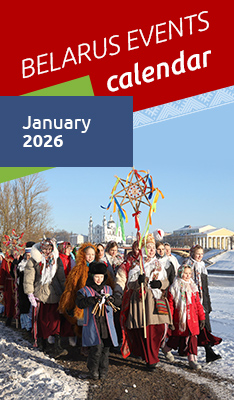Belarus parliament elections
Belarus parliament election procedures adjusted
MINSK, 20 April (BelTA) – After the elections of 2012 the CEC suggested some amendments to the legislation, Chairperson of Belarus’ Central Election Commission (CEC) Lidia Yermoshina told reporters on 20 April during the seminar to discuss the participation of the national public association Belaya Rus in the parliamentary election campaign, BelTA has learned.
“These changes have yet to be applied in the parliamentary elections,” she said. Firstly, the procedure for summing up the results of the elections has been made simpler, Lidia Yermoshina noted. The parliamentary elections were often held in two rounds. “For the elections to be declared valid, we needed the turnout of more than 50%. “The candidate with more than 50% of votes was elected in the first round” Lidia Yermoshina informed.
Now the principle of relative majority will be applied. The election shall be considered valid if the turnout is more than 50% and the candidate who polls more votes than any other candidate is elected. A one-vote margin is enough to name the winner of the elections and to declare the elections valid, Lidia Yermoshina noted. Such a system would provide an opportunity to actually do without the second round of voting. “But in case the election features one candidate, he has to gain more than 50% of the vote because another vote is called ‘vote against all’,” Lidia Yermoshina noted.
Secondly, the structure of the election commissions has changed. Earlier there was a three-tier structure during the parliamentary elections, in which the CEC was the only professional permanent body, with 110 district election commissions and precinct election commissions. There were some problems in the interaction between the district election commissions and the Central Election Commission.
“First and foremost, there were problems with financing: the financing was provided to the regions. Thus, the oblast and Minsk city financial departments were given the functions alien to them, i.e. we gave them the money earmarked for the elections, not the election commissions (because they have no financial workers). They, in turn, provided financing to district election commissions, i.e. we had a certain algorithm of accounting actions. This practice will exist no longer. This year, for the first time in parliamentary elections, we will have a link in the form of seven territorial commissions (six oblast commissions and a Minsk city commission) for the elections to the House of Representatives. It is these commissions that district election commissions will report to,” Lidia Yermoshina noted.
The procedure for contesting all disputes that arise during the election will be changed. Earlier the denial to register a candidate (a very conflict-ridden and important process) could be appealed only to the Central Election Commission, and then the Supreme Court, with its verdict being the final one. Now the procedure is different,” she noted. The decision of the district commission can be appealed to the territorial commission, and the decision of the regional territorial commission – to the regional (Minsk city) court. “The decision of the regional court shall be final. Neither the Central Commission nor the Supreme Court will be involved,” the Chairperson of the Central Election Commission stressed.
In addition, during this election a candidate standing for the election to the parliament cannot act as a proxy for another candidate, and can be nominated only in one constituency. This is done to create a level playing field for all potential candidates to the Parliament. According to the CEC Chairperson, back in 2012 one of the candidates to the parliament was a proxy of nine other candidates, and thus had an opportunity to appear in TV debates as a proxy nine times. “He represented these candidates in other constituencies of course,” Lidia Yermoshina added.







 print version
print version make home page
make home page add to bookmarks
add to bookmarks

